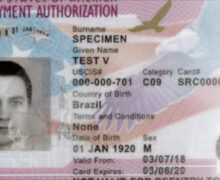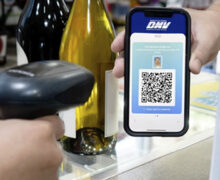Warning: California Veterans Face Potential Identity Theft
The U.S. Department of Veterans Affairs (USDVA) recently reported that electronic data containing information on 26.5 million veterans and others was taken in a burglary in May 2006.
An employee of the USDVA took home electronic data from the VA, which he was not authorized to do. The employee’s home was burglarized and this data was stolen. This data included names, social security numbers, dates of birth and some disability ratings for up to 26.5 million veterans and some spouses, as well as personal information on as many as 1.1 million military members on active duty, 430,000 members of the National Guard, and 645,000 members of the Reserves.
Appropriate law enforcement agencies, including the FBI and the VA Inspector General’s office, have launched full-scale investigations into this matter. While veterans do not need to take any action unless aware of suspicious activity regarding their personal information, there are many steps individuals may take to protect against possible identity theft.
Workshops for Veterans
In response to this incident the Department of Consumer Affairs California Office of Privacy Protection (Department), working with the California Department of Veterans Affairs, is offering several free workshops throughout the state to let veterans know what they can do now to protect themselves from identity theft.
The Department is working to add more workshops in additional locations, which will eventually be posted at www.privacy.ca.gov. A listing of scheduled workshops can be found at the end of this memo. Until additional workshops are added to the list, the Department has a number of valuable suggestions to help veterans protect their identity.
How to Protect Yourself
The California Office of Privacy Protection recommends that veterans whose personal information may have been involved in this incident take the following steps to protect themselves against possible identity theft.
1. Contact the three credit bureaus.
Individuals can report the potential identity theft to all three of the major credit bureaus by calling any one of the toll-free fraud numbers below. Individuals will reach an automated telephone system that allows them to flag their file with a fraud alert at all three bureaus.
Trans Union
1-800-680-7289
Experian
1-888-397-3742
Equifax
1-800-525-6285
2. What it means to put a fraud alert on your account.
A fraud alert helps protect you against the possibility of an identity thief opening new credit accounts in your name. When a merchant checks the credit history of someone applying for credit, the merchant gets a notice that there may be fraud on the account. This alerts the merchant to take steps to verify the identity of the applicant.
3. Carefully review individual credit reports.
Look for accounts that are not recognized — especially accounts opened recently. Also, as a general precaution, look in the personal information section for any addresses listed for you where you’ve never lived.
4. If you find items you do not understand, call the credit bureau at the number given on the report.
Credit bureau staff will review your report with you. If the information cannot be explained, then you will need to call the creditors involved and report the crime to your local police or sheriff’s office.
Stay Alert
Veterans should beware of any phone calls, e-mails, and other communications from individuals claiming to be from VA or other official sources, asking for your personal information or verification of it. This is often referred to as information solicitation or “phishing,” (i.e., “fishing” for information). VA, other government agencies, and other legitimate organizations will not contact you to ask for, or to confirm your personal information. If individuals receive such communications, they should be reported to the VA at:
1-800-FED-INFO
(1-800-333-4636)

























